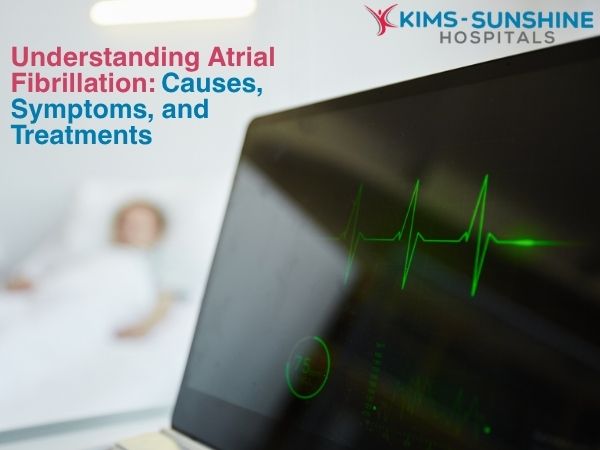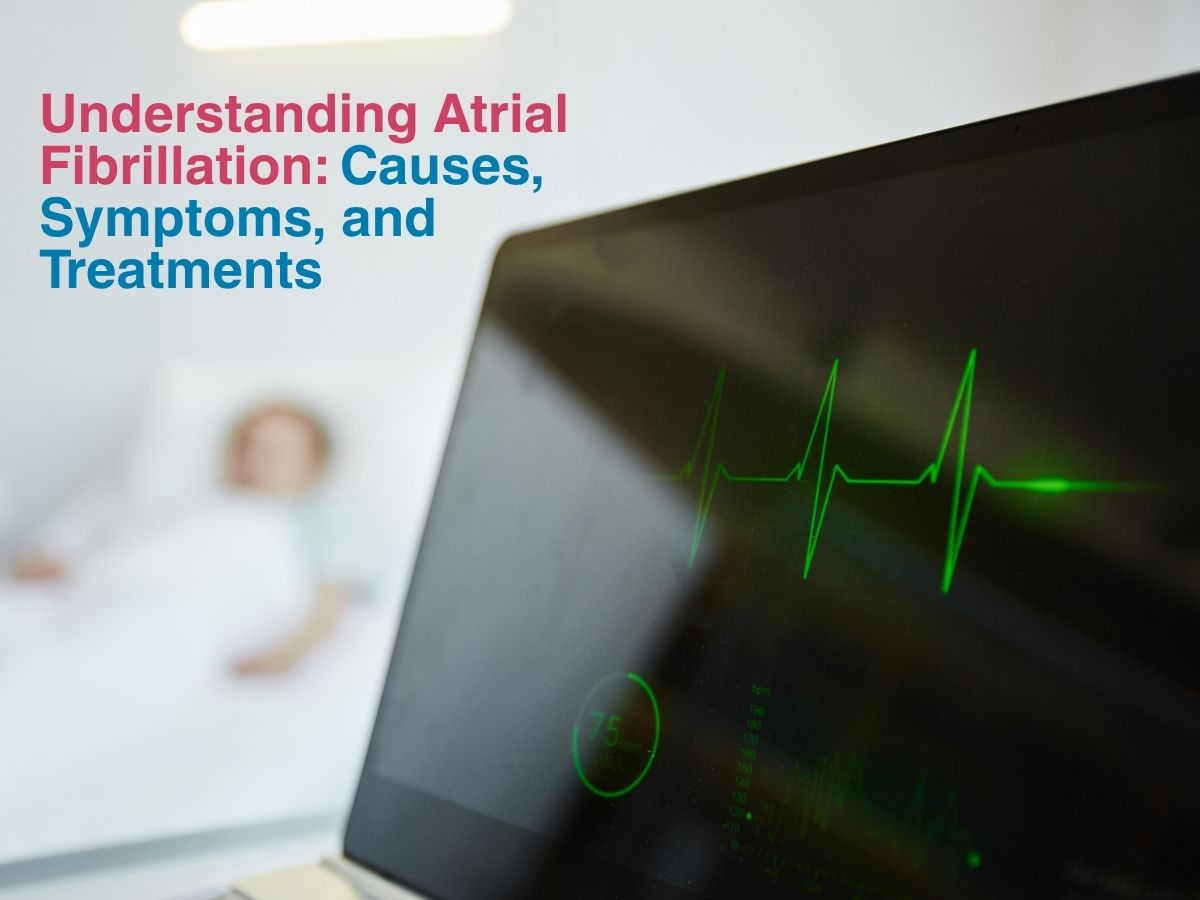
Understanding Atrial Fibrillation: Causes, Symptoms, and Treatments
 Most of us are hooked to medical dramas for good reason- they are super addictive and show us lots of different conditions that people can suffer from. Now, imagine a scene where a patient is wheeled into the Emergency Department, with irregular heart rate and rhythm, changes in BP, not being able to breathe normally and feeling dizzy. The doctor comes in, looks at them, checks their vitals and then says that they have a condition called AFib. Atrial fibrillation is a condition characterised by issues beginning in the upper chambers of the heart – caused by the electrical circuits not working properly in the heart. The heart needs proper, highly regulated and well spaced electrical signals to help it beat in rhythm and maintain its rate. AFib causes this rate and rhythm to go haywire- your heart beats way faster, you have heart palpitations and it is chaotic in general.
Most of us are hooked to medical dramas for good reason- they are super addictive and show us lots of different conditions that people can suffer from. Now, imagine a scene where a patient is wheeled into the Emergency Department, with irregular heart rate and rhythm, changes in BP, not being able to breathe normally and feeling dizzy. The doctor comes in, looks at them, checks their vitals and then says that they have a condition called AFib. Atrial fibrillation is a condition characterised by issues beginning in the upper chambers of the heart – caused by the electrical circuits not working properly in the heart. The heart needs proper, highly regulated and well spaced electrical signals to help it beat in rhythm and maintain its rate. AFib causes this rate and rhythm to go haywire- your heart beats way faster, you have heart palpitations and it is chaotic in general.
What Causes Atrial Fibrillation In Elderly Patients?
The heart is a highly organised structure composed of 4 chambers, bundles of nerve fibres and heart cells intertwined and it has a physical wall or boundary in between to ensure that oxygen rich blood stays away from deoxygenated or oxygen poor blood. There are valves to ensure that blood flows only in one direction. The heart rate and rhythm are maintained by a cluster of nerve cells located at the top right chamber of the heart, from where excitatory signals travel via nerve fibres, all over- so that the heart can pump blood in and out of blood vessels at a fixed rate. So, the sinoatrial node is the original pacemaker of the heart. When there is a problem with these cells- the electrical signals are all over the place- meaning your heart cells don’t know which orders to follow and which to ignore. This can lead to palpitations or fast heart rates and changes. There are other nodes in the heart which can act as a backup for the sinoatrial node, if there is failure at any time. The nodes don’t work as well as they should with increasing age, which is why this is a condition that normally affects older folk, especially those above 65 years of age.
Atrial Fibrillation Symptoms In Women vs. Men-
Both men and women show the following symptoms-
- Dizziness
- Rapid heart rate or palpitations
- Fainting
- Not being able to breathe normally
- Chest pain or angina
- Too much fatigue
But, women have more severe episodes of fainting, fatigue and are at a higher risk of developing a stroke, if not diagnosed and treated in a timely fashion. The durations of palpitations are much longer than in men. Plus, when drugs are prescribed, they don’t work as well in women and can cause more issues in the lower heart chambers instead. Generally though, women who have high BP and suffer from valvular disease are at higher risk of suffering from AFib, while men who have had heart attacks before or suffer from coronary heart disease (CHD) can suffer from AFib.
Difference Between Atrial Fibrillation And Atrial Flutter-
Both fibrillation and flutter are types of heart rhythms. But, having an atrial flutter means you have a fast heart rate which is regular. With fibrillation, the heart rate is both fast and irregular. Both are dangerous and can lead to conditions like stroke, heart attacks etc. So, in effect, an atrial flutter can cause you to have 250-350 atrial beats per minute, while an atrial fibrillation episode is much more extreme, reaching highs of 400-600 atrial beats per minute.
Atrial Fibrillation Diagnosis And Treatment Guidelines-
Atrial fibrillation is diagnosed with an electrocardiogram. You may also be asked to do some blood tests, ask you to wear a cardiac monitor for a day or a particular duration of time to check how your heart rate and rhythm change. You will obviously also have a detailed physical examination done. AFib is generally said to occur in stages 1-4- where 1 means you are at risk of developing AFib, 2- Pre-Afib, 3- Afib and 4 is permanent Afib respectively. Treatment depends on how often you suffer from symptoms and if it is due to structural issues or lifestyle problems.
Conclusion
Some well known risk factors for heart conditions in total and Afib specifically include suffering from high BP, being obese, diabetic, drinking too much alcohol, being older than 65 and having sleep apnea respectively. Doctors have to be particularly careful when diagnosing this condition as you may suffer from it often or have to deal with it rarely. So, proper management is a major concern. You may also be given medications to help improve circulation and reduce your risk of developing a stroke in the future. Surgery may be done – ablation particularly, to help deal with fibrillation. Otherwise, your doctor may recommend that you get a cardioversion done- where they shock the heart with a defibrillator and reset the rhythm. If you don’t do well with drugs like blood thinners, then another surgery called the LAA closure procedure may be recommended.






